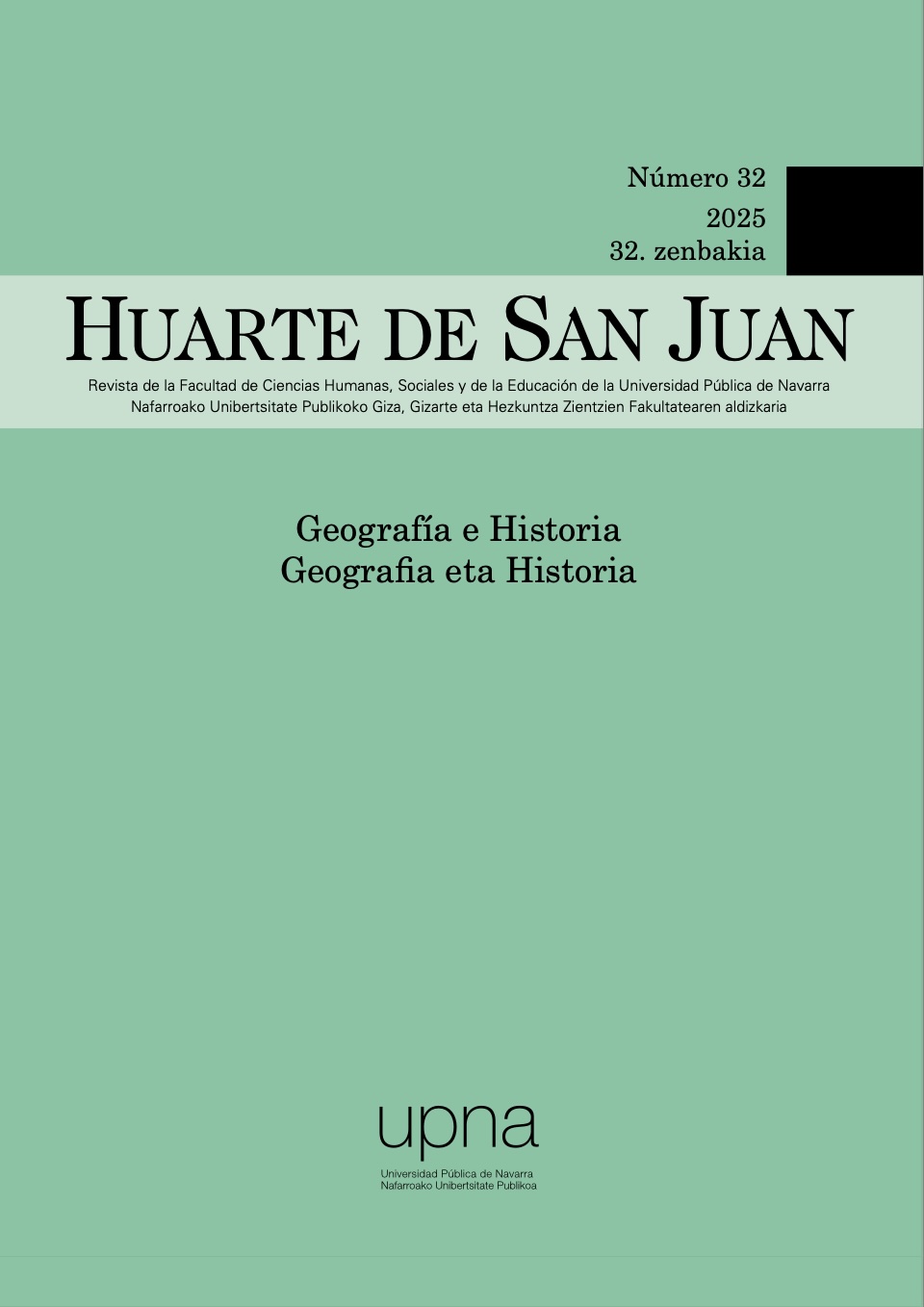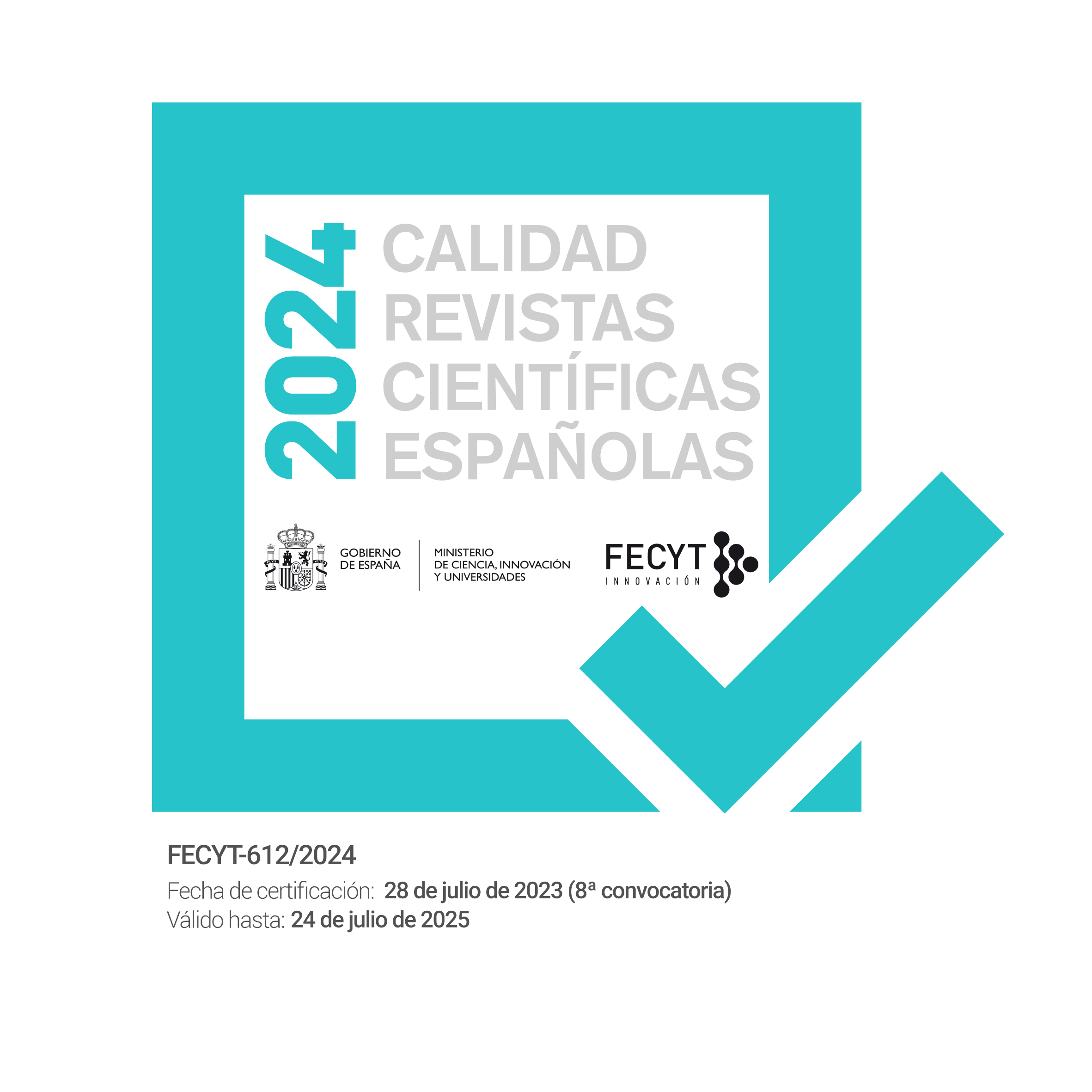Anti-monuments: emerging practices in the struggle for memory
DOI:
https://doi.org/10.48035/rhsj-gh.32.7Keywords:
anti-monument, counter-monument, memory studies, public space, social justiceAbstract
This paper analyzes the anti-monument, a new form of memory practice emerged in Mexico in the 2010s, which articulates innovative ways to understanding monumentality in relation to collective memory and social demands. The paper defines and characterizes the anti-monument through a qualitative analysis of significant recent academic and journalistic works on the topic. The anti-monument is presented as a political and artistic expression from social collectives that transforms public spaces to contest memory and democracy; initially, its goal is to preserve the memory of traumatic events and demand justice in contexts marked by state impunity. The anti-monuments reshape urban spaces by encouraging critical reflection on the past, recent history, and the state of social justice in society. The analysis shows how anti-monuments highlight current issues, such as forced disappearances and femicides, which are closely connected to unresolved historical traumas, aiming to foster a collective memory and a path toward a more democratic future. Additionally, the peculiarity of the anti-monument is highlighted in contrast to other alternative memory practices, such as such as the counter-monument. Finally, the paper underscores the role of anti-monuments as tools for social action and highlights their theoretical and methodological contributions to the field of memory studies.
Downloads
References
Allier Montaño, Eugenia y Juan Sebastián Granada-Cardona, «A new agenda for a consolidated field of studies: new and old themes of memory studies in Latin America», Memory Studies, 16.6, 2023, pp. 1436-1451. https://doi. org/10.1177/17506980231203638
Anahuac México, «Los “antimonumentos” en México: patrimonio cultural como rescate de la memoria social», Anahuac México, 2024. https://www.anahuac.mx/mexico/noticias/los-antimonumentos-en-mexico-patrimonio-cultural-como-rescate-de-la-memoria-social
Andermann, Jens, «Placing Latin American memory: sites and the politics of mourning», Memory Studies, 8.1, 2015, pp. 3-8. https://doi.org/10.1177/1750698014552402
Bodnar, John, «Pierre Nora, national memory, and democracy: a review», The Journal of American History, 87.3, 2000, pp. 951–963. https://doi.org/10.2307/2675281
Bustos, Samadi, «Antimonumentos gritan “ni perdón, ni olvido y castigo a los culpables”», Somos el Medio, 2024. https://www.somoselmedio.com/antimonumentos-gritan-ni-perdon-ni-olvido/
Calveiro, Pilar, Poder y desaparición: los campos de concentración en Argentina, Buenos Aires, Colihue, 1998.
Carbajal, Sofía, «¿Cuáles son las antimonumentas feministas en otros estados?», La Cadera de Eva, 2022. https://lacaderadeeva.com/actualidad/cuales-son-las-antimonumentas-feministas-en-otros- estados/6005
Castellanos, Laura, México armado. 1943-1981, México, Era, 2013.
Clarke, Victoria y Virginia Braun, «Thematic analysis», The journal of positive psychology, 12.3, 2017, pp. 297- 298. https://doi.org/10.1080/17439760.2016.1262613
Conway, Brian, «New directions in the sociology of collective memory and commemoration», Sociology Compass, 4, 2010, pp. 442-453. https://doi.org/10.1111/j.1751-9020.2010.00300.x
Díaz Tovar, Alfonso y Lilian Paola Ovalle, «Antimonumentos. Espacio público, memoria y duelo social en México», Aletheia, 8.16, 2018, pp. 1-21.
Délano Alonso, Alexandra y Benjamin Nienass, «Memory activism and Mexico’s war on drugs: countermonuments, resistance, and the politics of time», Latin American Research Review, 56.2, 2021, pp. 353–370. https://doi.org/10.25222/larr.534
Délano Alonso, Alexandra y Benjamin Nienass, «Memory protest and contested time: the antimonumentos route in Mexico City», Sociologica, 17.1, 2023, pp. 9-23. https://doi.org/10.6092/issn.1971-8853/16942
Délano Alonso, Alexandra, Benjamin Nienass y Alicia de los Ríos Merino (eds.), Las luchas por la memoria contra las violencias en México, Ciudad de México, El Colegio de México, 2023.
De los Ríos Merino, Alicia, «Militancia, testimonio y violencia», Revista Electrónica de Psicología Iztacala, 17.1, 2017, pp. 344-364.
Drozdzewski, Danielle, Sarah De Nardi y Emma Waterton, «The significance of memory in the present», en Danielle Drozdzewski, Sarah De Nardi y Emma Waterton (eds.), Memory, place and identity: commemoration and remembrance of war and conflict (1a ed.), Routledge, 2016, pp. 1–16). https://doi.org/10.4324/9781315685168-1
Fundación Heinrich Böll, Antimonumentos: memoria, verdad y justicia, Heinrich Böll Stiftung, 2020.
Gatti, Gabriel, El detenido-desaparecido: narrativas posibles para una catástrofe de la identidad, Ediciones Trilce, 2008.
González Enríquez, Lucía Leonos, «Contranarrativas en búsqueda de vida: historias para restituir la humanidad y combatir el olvido», Andamios, 19.50, 2022, pp. 193- 222.
Gutierrez, Fernando, «Spaces for resistance, places for remembering: the anti-monumenta in Mexico City», Journal of Urban Matters, 2024. https://urbanmatters- journal.com/spaces-for-resistance-places-for-remembering-the-anti-monumenta-in-mexico-city/
Hatfield, Charles, «The memory turn in Latin America», Política común, 6, 2024, pp. 1-16. https://doi.org/10.3998/pc.12322227.0006.015
Hite, Katherine, «Spaces, sites, and the art of memory», Latin American Research Review, 52.1, 2017, pp. 190-196. https://doi.org/10.25222/larr.97
Híjar González, Cristina, «El antimonumento +43: acontecimiento visual de una memoria viva y en resistencia», Nierika, 7.13, 2018, pp. 57-68.
Hoelscher, Steven y Derek H. Alderman, «Memory and place: geographies of a critical relationship», Social and Cultural Geography, 5.3, 2004, pp. 347–355. https:// doi.org/10.1080/1464936042000252769
Illades, Carlos, Conflict, domination, and violence: episodes in Mexican social history (vol. 2). Berghahn Books, 2017.
Jelin, Elizabeth, Los trabajos de la memoria, Argentina, Fondo de Cultura Económica, 2022.
Jelin, Elizabeth y Victoria Langland. Monumentos, memoriales y marcas territoriales Siglo XXI Editores, 2003.
Kansteiner, Wulf, «Finding meaning in memory: a methodological critique of collective memory studies», History and Theory, 41, 2002, pp. 179-197. https://doi. org/10.1111/0018-2656.00198
Kékesi, Zoltán y Máté Zombory, «Beyond multidirectional memory: opening pathways to politics and solidarity», Memory Studies, 17.6, 2024, pp. 1664–1683. https://doi. org/10.1177/17506980231176040
Kuri Pineda, Edith, «El memorial del 68 en México: la construcción de la memoria colectiva sobre un movimiento social emblemático», Revista Colombiana de Ciencias Sociales, 9.1, 2018a, pp. 135-154. https://doi.org/10.21501/22161201.2612
Kuri Pineda, Edith, «El “Museo Casa de la Memoria Indómita”: condiciones de producción y recepción de un espacio de memoria dedicado a la guerra sucia en México», Sociológica (México), 33.93, 2018b, 181-212.
Lazzara, Michael J., «The memory turn», en Juan Poblete (ed.), New approaches to Latin American studies. Culture and power (1a ed., vol. 1), Routledge, 2018, pp. 14-31. https://doi.org/10.4324/9781315158365-2
Lemus Muñiz, Daniela y Marisol Pérez López, «Hegemonía, historia y patrimonio: los antimonumentos y la disputa por la memoria en el espacio público en el México del siglo xxi», en Silvia Inés Molina y Vedia del Castillo (coords.), Patrimonio de México: novedad, complejidad y conflicto, UNAM, 2024, pp. 15-40.
Martínez, Norma, «La Antimonumenta Justicia es una expresión de desesperación», Cultura en Bicicleta, 2023. https://culturaenbicicleta.com/pacto-de-silencio-al-grito-de-las-mujeres/#_ftn3
Mandolessi, Silvana, «Latin America», en Yifat Gutman, Jenny Wüstenberg, Irit Dekel, Kaitlin M. Murphy, Benjamin Nienass, Joanna Wawrzyniak y Kerry Whigham (eds.), The Routledge handbook of memory activism, Routledge, 2023, pp. 295- 299.
Marín-Lancheros, Julián Andrés, «Nombrar lo innombrable: el contramonumento. Fragmentos y la violencia sexual», Sociedad y economía, 49, 2023, pp. 1-18. https:// doi.org/10.25100/sye.v0i49.11725
Menon, Dilip M., «Changing theory: thinking concepts from the Global South», Comparative Literature Studies, 59.1, 2022, pp. 142–162. https://doi.org/10.5325/ complitstudies.59.1.0142
Mitchell, Katharyne, «Monuments, memorials, and the politics of memory», Urban Geography, 24.5, 2003, pp. 442-459. https://doi.org/10.2747/0272-3638.24.5.442
Monsiváis, Carlos, Entrada libre: crónicas de la sociedad que se organiza (vol. 169), Ediciones Era, 1987.
Muñoz, Gloria, «Antimonumentos, la ruta por la memoria amenazada», Desinformémonos, 2019. https://desinformemonos.org/antimonumentos-la-ruta-por-la-memoria-amenazada/
Nienass, Benjamin y Alexandra Délano Alonso, «Mexico City’s memorial to the victims of violence and the facade of participation», en Joyce Apsel y Amy Sodaro (eds.), Museums and sites of persuasion: Politics, memory and human rights, Routledge, 2019, pp. 153-173). https://doi.org/10.4324/9781138567825
Ortega Hernández, Maribel Adalid, «Los antimonumentos como forma de protesta en México», en John Kenny Acuña Villavicencio (coord.), Conflicto y acción colectiva. Una mirada desde Guerrero, Centro de Estudios Antropológicos Cusco, 2024, pp. 17-35.
Ovalle, Lilian Paola y Alfonso Díaz Tovar, Memoria prematura: una década de guerra en México y la conmemoración de sus víctimas, Consejo Nacional de Ciencia y Tecnología (CONACYT)/ Fundación Heinrich Böll, 2019.
Paredes, Heriberto, «Lxs antimonumentxs: la memoria hecha acero», Pie de Página, 2021. https://piedepagina.mx/lxs-antimonumentxs-la-memoria-hecha-acero/
Pernau, Margrit, «Concepts from the Global South. Theoretical and methodological reflections», Contributions to the History of Concepts, 19.2, 2024, pp. 1–18. https://doi.org/10.3167/choc.2024.190201
Peña, Alejandro, «Antimonumentos de la CDMX: Antigloriosos y antiheroicos, recuerdo permanente de las heridas abiertas que no pueden sanar», MiValedor, 2024. https://www.mivaledor.com/revista/documental/antimonumentos-de-la-cdmx-antigloriosos-y-antiheroicos-recuerdo-permanente-de-las-heridas-abiertas-que-no-pueden-sanar/
Reguillo Cruz, Rossana, Emergencia de culturas juveniles: estrategias del desencanto, Norma, 2000.
Reeves, Keir, «Sites of memory», en Anna Maerker, Simon Sleight y Adam Sutcliffe (eds.), History, memory and public life. The past and the present (1.a ed.), Rotuledge, 2018, pp. 65–79. https://doi.org/10.4324/9781351055581-3
Rodríguez Kuri, Ariel, «Guerra sucia: límites de la memoria, insuficiencias de la historia. Presentación», Historia mexicana, 74.1, 2024, pp. 157-170. https://doi.org/10.24201/hm.v74i1.4791
Rothberg, Michael, Multidirectional memory. Remembering the Holocaust in the Age of Decolonization, Stanford University Press, 2009.
Ruiz Lagier, Rocío, «Estudios de la Memoria y acciones de memoria en México. Dos caminos desfasados», Ciencia Nueva, Revista de Historia y Política, 7.2, 2023a, pp. 162–185. https://doi.org/10.22517/25392662.25387
Ruiz Lagier, Rocío, «Las intervenciones en el espacio público de la Ciudad México: políticas culturales de la memoria y movilización social», en Adriana Aguayo Ayala y Rocío Ruiz Lagier (eds.), Memoria y políticas culturales: procesos globales, conflictos locales, Iztapalapa (México), Universidad Autónoma Metropolitana, 2023b, pp. 27-54.
Saban, Karen, «De la memoria cultural a la transculturación de la memoria: un recorrido teórico», Revista chilena de literatura, 101, 2020, pp. 379-404. http://dx.doi.org/10.4067/S0718-22952020000100379
Savage, Kirk, History, memory, and monuments: An overview of the scholarly literature on commemoration, University of Pittsburgh, 2007.
Seligmann-Silva, Marcio, «Antimonuments: between memory and resistance», Between, 10.20, 2020, pp. 149-169. https://doi.org/10.13125/2039-6597/4283
Seydel, Ute, «La constitución de la memoria cultural», Acta poética, 35.2, 2014, pp. 187- 214.
Stevens, Quentin, Karen Franck y Ruth Fazakerley, «Counter-monuments: the anti-monumental and the dialogic», The Journal of Architecture, 23.5, 2018, pp. 718- 739. https://doi.org/10.1080/13602365.2018.1495914
Tenorio Trillo, Mauricio, La historia en ruinas. El culto a los monumentos y a su destrucción. Alianza Editorial, 2023.
Terry, Gareth, Nikki Hayfield, Victoria Clarke y Virginia Braun, «Thematic analysis», en Carla Willig y Wendy Stainton Rogers (eds.), The SAGE handbook of qualitative research in psychology (2.a ed.), SAGE Publications, 2017, pp. 17- 37. https:// doi.org/10.4135/9781526405555
Vicente, Camilo, Tiempo suspendido: una historia de la desaparición forzada en México, 1940- 1980, Bonilla Artiga Editores, 2019.
Verovšek, Peter J., «Collective memory, politics, and the influence of the past: the politics of memory as a research paradigm», Politics, Groups, and Identities, 4.3, 2016, pp. 529-543. https://doi.org/10.1080/21565503.2016.1167094
Volpi, Jorge, La imaginación y el poder. Una historia intelectual de 1968, Ediciones Era, 1968.
Yankelevich, Pablo, «México y Centroamérica: guerra fría, diplomacia y lucha armada», Estudios interdisciplinarios de América Latina y el Caribe, 30.1, 2019, pp. 7-12.
Young, James E., «The counter-monument: memory against itself in Germany today», Critical inquiry, 18.2, 1992, pp. 267-296. https://doi.org/10.1086/448632
Young, James E., The texture of memory: Holocaust memorials and meaning, Yale University Press, 1993.
Downloads
Published
How to Cite
Issue
Section
License
Copyright (c) 2025 Everardo Pérez Manjarrez

This work is licensed under a Creative Commons Attribution-NonCommercial-NoDerivatives 4.0 International License.
La información referente al sistema de autoarchivo y política de derechos de explotación establecido por esta revista puede consultarse en DULCINEA.









